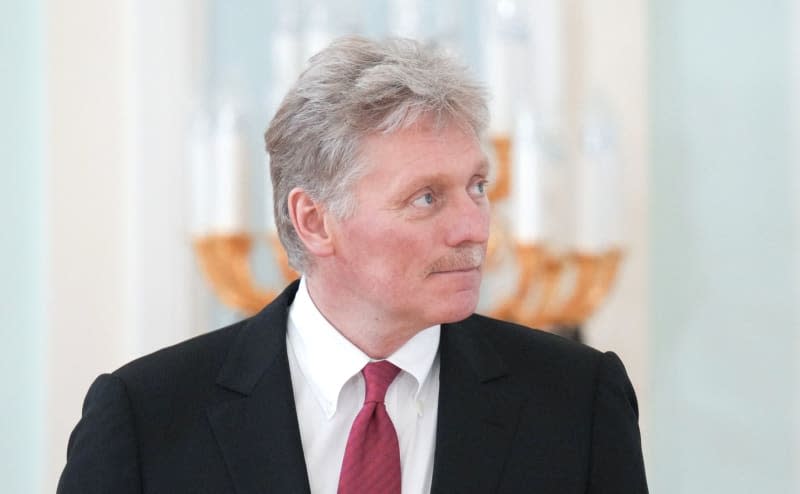Moscow ready to talk after pope's criticized 'white flag' remark

- Oops!Something went wrong.Please try again later.
- Oops!Something went wrong.Please try again later.
Moscow sees Pope Francis' controversial comments on the war in Ukraine not as a call for Ukraine to capitulate, rather as a plea for negotiation, Kremlin spokesman Dmitry Peskov said on Monday, according to Russian media.
Pope Francis said, in comments which were made during a February interview with Swiss public television that came to light on Sunday, that the strongest actor was the one that "thinks about the people and has the courage of the white flag, and negotiates."
The pope did not name Ukraine or Russia in his remarks, which were set to be fully broadcast on March 20.
The comments were widely criticized on Sunday by numerous leaders including those from Ukraine, Poland and Latvia.
On Monday, authorities in Kiev said that Apostolic Nuncio Visvaldas Kulbokas, who represents the Vatican in Ukraine, was summoned to the Foreign Ministry in response to the pope's comments. Kulbokas has been informed that Ukraine is "disappointed" by Francis' statements.
The papal appeal should "go to the aggressor and not to the victim," Ukraine officials said. Francis is expected to advocate a "victory of good over evil... instead of sending appeals that legalize the right of the strongest and encourage him to continue disregarding the norms of international law."
Kiev stressed that Ukraine was striving for peace but this peace must be fair and based on the peace formula presented by President Volodymyr Zelensky.
That plan calls for the withdrawal of Russian troops, which currently occupy around a fifth of Ukrainian territory.
In a February interview with a Swiss public television programme that was partially released on Sunday, Francis said: "When you see that you are defeated, that things are not going well, you have to have the courage to negotiate."
The pope said "the stronger person is the one who recognizes the situation, who thinks of the people, who has the courage of the white flag to negotiate." Vatican spokesman Matteo Bruni later contradicted reports that the pope had called on Ukraine to surrender.
Kremlin spokesman Peskov said Russian President Vladimir Putin had repeatedly expressed willingness to negotiate. "That is the preferred path."
Peskov accused the West of exacerbating the conflict, referring in particular to a comment last month by French President Emmanuel Macron in which he did not rule out sending ground troops to Ukraine.
"That is a dangerous line, a very dangerous line," Peskov said. He added that Russia was following the situation closely and that Moscow had information that there were people in Ukraine who were described as advisors but who were directly linked to NATO.
He may have been referring to a recent call among German military officials that Russia was able to intercept as an unsecured cell phone line was used. The officers spoke about British soldiers being on the ground in Ukraine to help Ukraine's military with long-range Storm Shadow missiles, which London has sent to Kiev.
Peskov did not directly mention the phone call.
Meanwhile on the ground on Monday, one person was killed in Ukrainian shelling of the western Russian region of Kursk on the border with Ukraine, local authorities said.
Another woman suffered injuries as a result of the attack by the Ukrainian armed forces, the governor of the Kursk region, Roman Starovoit, wrote on Telegram.
He said that the village of Goncharovka in the Sudzha district just a few kilometres from the border with Ukraine had come under fire in the morning, presumably from artillery.
The village of Vnesapnoye was also shelled, damaging a gas pipeline and a power line, the governor said. Four villages were without power as a result of the attacks, he added.
The Russian Defence Ministry did not comment on the attacks, but said six Ukrainian drones had been shot down.
Russia, which launched a full-scale invasion of Ukraine more than two years ago and occupies large parts of the neighbouring country, also regularly bombards targets far behind the front line. On Sunday night, Ukraine reported attacks on the Kharkiv and Odessa regions in particular, with damage to residential buildings and other civilian infrastructure.
Russian border regions close to Ukraine are also increasingly complaining of shelling from the neighbouring country. However, the number of victims and the extent of the damage cannot be compared with the scale of the destruction caused by the Russian military.

